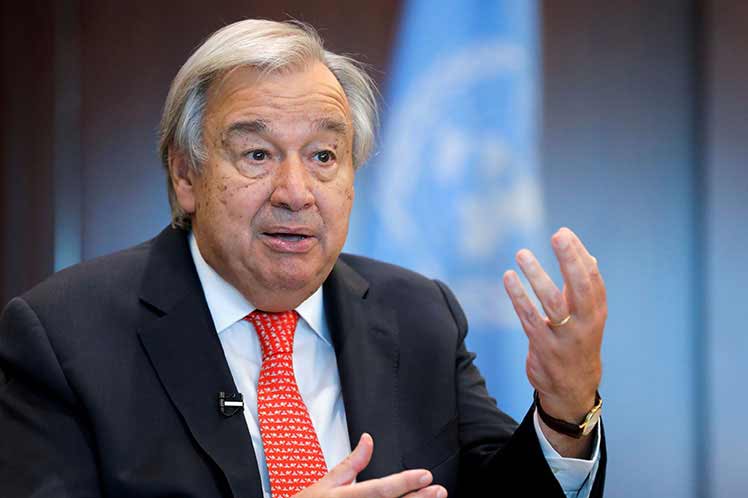In his message for the International Day for Disaster Risk Reduction, Guterres called for more cooperation in this regard, especially for developing countries.
Effective disaster risk reduction relies on international cooperation and global solidarity, and is also about ensuring fair and equitable access to Covid-19 vaccines for all, Guterres said.
Likewise, he said, there is a pressing need to dramatically increase funding and support for climate change adaptation and resilience development, and to comply with the Sendai Framework.
‘Weak governance, growing poverty, biodiversity loss, collapsing ecosystems and unplanned rapid urbanization are all interconnected drivers of disaster risk’, he said in a video message for the day.
Left unaddressed, the UNSG stressed, they aggragate the intensity and frequency of disasters, increase the need for humanitarian assistance, and stand in the way of the global effort to defeat the Covid-19 pandemic, adapt to climate change, and to make better progress.
Just 24 hours advance warning of a storm or heatwave can reduce the damage by 30%, but many low- and middle-income countries do not have adequate early warning systems, he stated.
‘And when disaster strikes, weak health systems and infrastructure leave them even more vulnerable. Decades of development gains can be wiped out in an instant’, Mr. Guterres added.
For the Secretary-General, building resilience to climate change and reducing disaster risk is ‘vital to save lives and livelihoods, eradicate poverty and hunger and achieve the Sustainable Development Goals.’
He also highlighted the threat for Small Island Developing States, saying it is a question of survival amid warming oceans, rising seas, and intensifying storms.
mh/pll/acl/ifb










